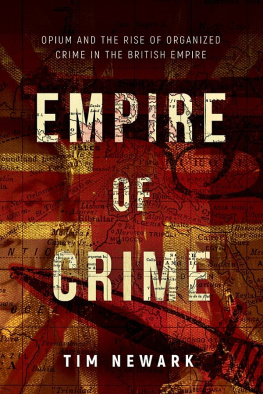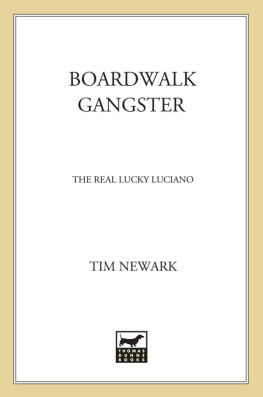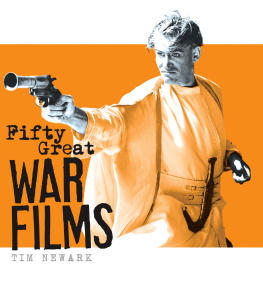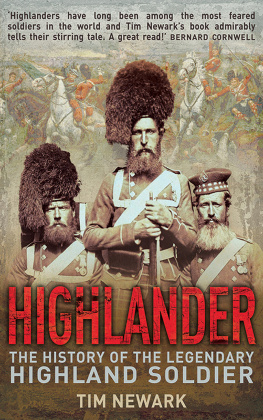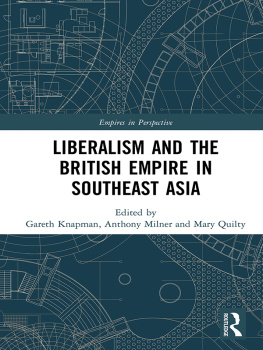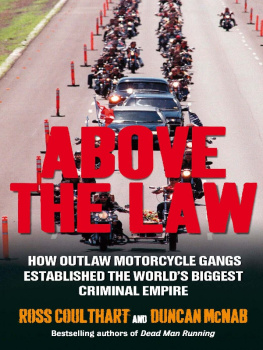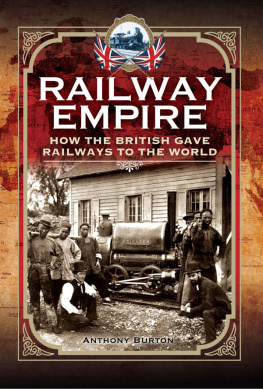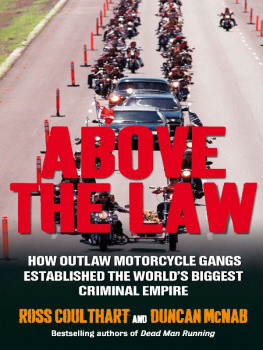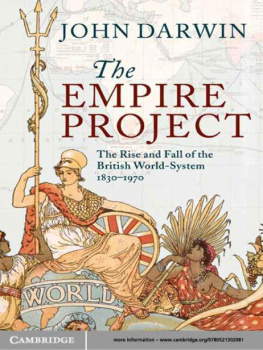Praise for Empire of Crime
Snappy as Spillane, this book is packed with girls, guns and guts. The violent milieu explored by Newark is not South Side Chicago but the British Empire.
Independent
Probing areas which historians have usually tactfully avoided, Newark has lifted the curtain on a hidden era of the British Empire.
The Herald
As fascinating and exciting as any crime novel, a truly gripping expos.
Ian Knight, author of Zulu Rising
History as its meant to be: clear, unpretentious, exciting, authoritative and enthusiastic. Unquestionably one of my books of the year.
City AM
Tim Newarks vivid account of the exploits of law enforcement agents during the British Empire is captivating. He brings to life these talented international policementhe drug-busting cops of the daysuperbly. Agatha Christie meets The Godfather !
Andrew Roberts, author of The Storm of War
Tim Newark is the author of the critically acclaimed Lucky Luciano: Mafia Murderer and Secret Agent and The Mafia at War. For 17 years editor of Military Illustrated , he is also the author of numerous military history volumes, including Highlander . He has worked as a TV scriptwriter and historical consultant, resulting in seven TV documentary series for BBC Worldwide and the History Channel, including the thirteen-part TV series Hitlers Bodyguard . He contributes political comment pieces to the Daily Express, Telegraph, and Sunday Times .
First Skyhorse Publishing edition 2018
Copyright 2011 by Tim Newark
First published in Great Britain by Mainstream Publishing Company (Edinburgh) Ltd.
All rights reserved. No part of this book may be reproduced in any manner without the express written consent of the publisher, except in the case of brief excerpts in critical reviews or articles. All inquiries should be addressed to Skyhorse Publishing, 307 West 36th Street, 11th Floor, New York, NY 10018.
Skyhorse Publishing books may be purchased in bulk at special discounts for sales promotion, corporate gifts, fund-raising, or educational purposes. Special editions can also be created to specifications. For details, contact the Special Sales Department, Skyhorse Publishing, 307 West 36th Street, 11th Floor, New York, NY 10018 or info@skyhorsepublishing.com.
Skyhorse and Skyhorse Publishing are registered trademarks of Skyhorse Publishing, Inc., a Delaware corporation.
Visit our website at www.skyhorsepublishing.com.
10 9 8 7 6 5 4 3 2 1
Library of Congress Cataloging-in-Publication Data is available on file.
Cover design by Rain Saukas
Cover photo credits: iStock
Print ISBN: 978-1-5107-2346-7
Ebook ISBN: 978-1-5107-2347-4
Printed in the United States of America
To all the colonial police officers who put their lives on the line, doing the right thing
ACKNOWLEDGMENTS
FOR THEIR HELP IN THE research of this book, I would like to thank the following individuals and institutions: the staff of the British National Archives, Kew; the British Library, Kings Cross, India Office Library & Records, and Newspaper Library, Colindale; Liddel Hart Centre for Military Archives, Kings College London; School of Oriental & African Studies, University of London; Federal Bureau of Investigation Records Management Division; James P. Quignel, Harry J. Anslinger Papers, Penn State University; Cliff Le Quelenec, HMS Belfast Association; National Malaya & Borneo Veterans Association UK; Mrs Hilary Drummond; Jim Prisk and Keith Lomas, Royal Hong Kong Police Association; Dr K.Y. Lam, curator of the Hong Kong Police Museum; D.S.P. Halal Ismail, curator of the Royal Malaysia Police Museum, Kuala Lumpur; Roderic Knowles, for memories of gold smuggling; Peter Newark, for his extensive crime and police photographic archive; historians Andrew Roberts, Ian Knight and James Morton, for their kind words and suggestions; special thanks to Chris Newark, for his good advice and extensive colonial history library.
CONTENTS
INTRODUCTION
It is not the man who eats the opium, but the opium that eats the man.
Chinese Mandarin maxim
SOMETIMES THE BEST INTENTIONS CAN lead to the worst results. When Great Britain took the moral high ground and agreed to end its lucrative export of opium from Imperial India to China in 1908, it unleashed a century of criminality. Just as Americas misguided Prohibition of alcohol made illicit fortunes for the Mafia, so organised crime within the British Empire grew rich on its trade in illegal narcotics in the twentieth century.
Victorian Prime Minister William Ewart Gladstone had predicted this would happen when he argued in Parliament against the abolition of the imperial trade in opium. An enormous contraband trade will grow, he told well-meaning Liberal politicians. Does not my honourable Friend see that, supposing he could stop the growth of opium in the whole Indian peninsula, his measure would immensely stimulate the growth of it in China?
This book is the first to reveal the full extent and variety of organised crime within the British Empire and how gangsters exploited its global trade routes to establish a new age of criminal networks that spanned the world. They even took the liberty of using the very weapons of imperial power Her Majestys Royal Navy to smuggle drugs from continent to continent. HMS Belfast now an iconic museum ship moored in the River Thames was once packed with Triad narcotics from Hong Kong intended for distribution in America.
Illicit guns were smuggled along ancient trade routes made safe by the British Empire through the Middle East, across the Persian Gulf, to Afghanistan and India. Most of these weapons were supplied by European arms manufacturers, greedy for profit, who did not care where the guns ended up. Some of the guns were even bought with money given by the Imperial Indian government to border tribes to ensure their loyalty. So that we not only supplied the tribesmen with arms of British manufacture, concluded one cynical veteran of the North-West Frontier, but we gave them the money to buy them!
The imperial prohibition of opium trading caused great tension between the government in London and its colonial governors, who had to deal with the messy outcome of these good intentions. Chinese refugees fleeing civil war in the mainland presented a major problem to Sir Cecil Clementi, Governor of Hong Kong in the 1920s. Faced with a shortfall of opium to meet the needs of thousands of new addicts, he knew that something dramatic had to be done. Rather than seeing the opium trade fall into the hands of criminal smugglers who had no incentive to control the consumption of opium, Sir Cecil took the unconventional initiative of becoming a major dealer himself.
In defiance of the British governments own anti-drugs stance, Sir Cecil organised the purchase of large quantities of opium directly from Persia to dump on his home market and put the smugglers out of business. He even entered into negotiations with other colonies to supply them with much-needed opium, too. It was an extraordinary experiment and Sir Cecil noted with delight the dramatic fall in opiumrelated crime in his own colony; but the Whitehall bureaucrats couldnt put up with this for long and demanded he cease dealing in the drug.
If Britain had handed a great gift to organised crime, it also took on the burden of pursuing the purveyors of this new evil. Principal among these innovative drugs-busting investigators was Russell Pasha, Commandant of the Cairo Police and founder of the Central Narcotics Intelligence Bureau. Seeing the damage caused by a new wave of opium-derived drugs, especially heroin, on the streets of the Egyptian capital, he set about pulling together evidence of a vast international network, linking East with West. His agents exposed the opium fields guarded by narcotics warlords and tracked down the corrupt pharmaceutical companies in Western Europe who were happy to sell thousands of kilos to ruthless master criminals.
Next page
